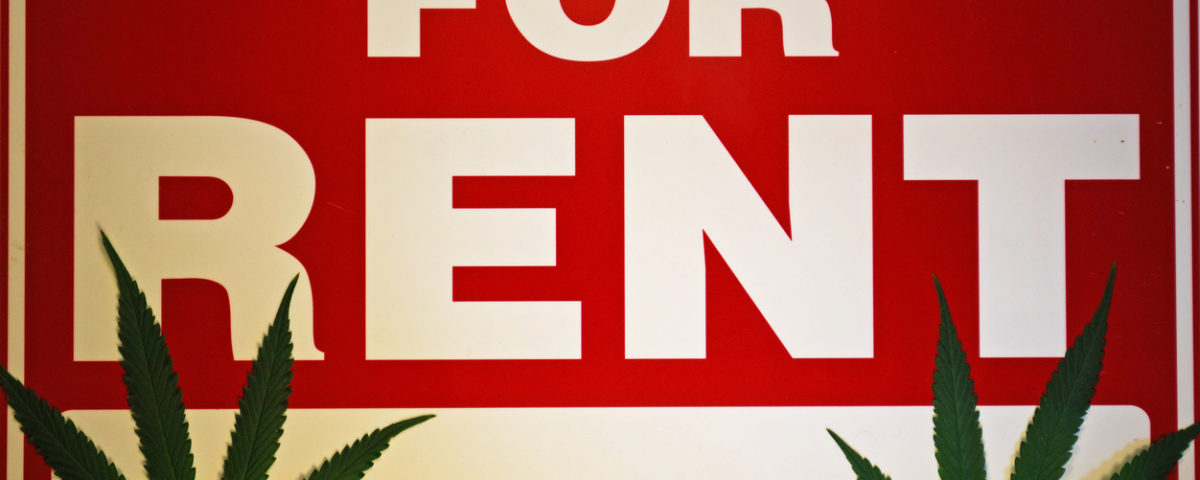
A for rent sign with two marijuana leaves on it.
Being a Landlord is not easy to begin with and now you need to be ready for legal weed. While the new laws will impact all homeowners [see previous blog: Legal Weed – How it impacts your home] there are some additional impacts for Landlords.
Article By: Neil O’Donnell
A quick review of the new cannabis laws in Ontario:
As of October 17th, 2018, it is now legal for adults 19+ years of age to possess up to 30 grams (one ounce) of marijuana – that’s equal to about 40-70 joints, depending on the size of the joint. Definitely less if we are talking Cheech and Chong type stuff.
It’s also legal to have up to 4 pot plants per residence. That would be between ¼ pound to 1 pound of weed depending if you grow indoors vs outdoors and growing conditions, your expertise etc. Since I can kill a cactus if I tried to grow my yield would probably be zero. (NB: to be legal in Ontario, the plants have to originate from licensed providers.)
Condo boards are currently passing rules to deal with the legalization of cannabis. Many are going completely smoke-free (both tobacco and marijuana) and grandfathering in current smoker residents. Others are planning to rely on existing ‘nuisance’ rules to deal with any issues. If you own a condo, talk to your property manager to understand what they are doing and how that impacts you and your Tenant.
Tips/Suggestions for Ontario Landlords
- Include a no-smoking rule in the lease. Good news is that Section 10 of Ontario’s standard Residential Tenancy Agreement allows you to specify smoking rules. If the Tenant agrees in writing to not smoke in the unit and proceeds to smoke, you likely have grounds to evict them. If you are Landlord you already know that evictions in Ontario are not easy, and you’ll probably be asked to demonstrate that the smoke was either damaging the property or interfering with the enjoyment of other tenants.
- Include a ‘no grow’ rule in the lease that specifically states that the Tenant is prohibited from growing marijuana in the unit.
Condos: If you’re renting out your condo, make sure to give Tenants a copy of the condominium rules and bylaws. If your condo building is smoke-free, the Tenants must abide by the rules.
TIP: It’s a good idea to include in the rental add the rules when looking for a new Tenant. It will save you time interviewing and doing background checks on a potential tenant who wants to grow or smoke in your unit.
Insurance: Speak to your insurance guy about how your coverage is impacted if legal pot is being grown inside of your apartment, home or condo. Make sure your policy covers you if your Tenant smokes or grows the legally-allowed four pot plants inside your property.
Hydro Usage: If your tenants don’t pay for their own hydro and If they decide to grow the legally allowed four pot plants, how will that affect your hydro bill? According to a CBC article from Jan 2018 “From lights and heating to pumps and ventilation fans, it’s estimated that it takes about 2,000 kWh to make a pound of product using traditional growing methods”. That’s almost two months worth of normal electricity usage. You need to account for that.
IF your tenant uses the latest LED technology and high efficient fans, etc it could cost less than $5/month in extra hydro. However, you need to work with your tenant to make sure it happens. If not you could be eating a lot more cost.
Smells: cigarette and pot smoke tends to get into everything. If your tenant is smoking weed in your house or condo, be prepared for much bigger cleaning bills in between tenants. If they smoke you will almost always have to paint and replace carpets and drapery. If they smoke a lot it may also mean new cabinets and flooring. Section 13 of the Ontario Residential Tenancy Agreement states that “the tenant must repair or pay for any undue damage to the rental unit or property caused by the willful or negligent conduct of the tenant, the tenant’s guests or another person who lives in the rental unit”. However collecting from tenants can be a pain.
TIP: Do random checks. It’s smart to schedule regular inspections with your Tenant and your property. In Ontario, you must provide 24 hours written notice (indicating the reason for entry, date, time and length of entry). The Tenant does not have to be home during the inspection. Doing this quarterly is something you should consider.
Is your property a grow-op? Remember that Ontario’s rules allow for the growing of 4 pot plants per residence, so your 4-unit house could have as many as 16 pot plants in it and apartment buildings could become small-scale grow-ops. When it comes time to sell, make sure to discuss with your REALTOR and lawyer about any disclosures that you need to make about the pot-growing activity that has taken place in your home. We always recommend to our clients to always disclose. Don’t give a potential buyer an option to get out of the deal because you didn’t disclose.
No one ever said that being a Landlord is easy, and legal pot will create some serious concerns that you need to be ready to address.
For a more in-depth discussion on these topics, go to: Request a FREE Copy of our latest book, “The Value-Driven Approach to Sell Real Estate: How to protect yourself from Real Estate Greed and bank extra profit by thinking like the great Warren Buffett.”

